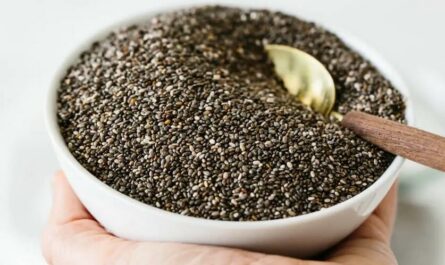Apple cider vinegar (ACV) has gained popularity in recent years due to its potential health benefits. From aiding digestion to supporting weight loss, ACV is often touted as a natural remedy for various health conditions. But how much ACV should you drink daily to reap these benefits? In this article, we will explore the recommended dosage and the best ways to incorporate apple cider vinegar into your daily routine.
What is Apple Cider Vinegar?
Apple cider vinegar is a type of vinegar made from apple cider that has undergone fermentation. It is produced by crushing apples and extracting the liquid, which is then fermented by adding bacteria and yeast. During the fermentation process, the sugar in the apple cider is converted into acetic acid, giving ACV its distinct sour taste and strong odor.
Apart from acetic acid, apple cider vinegar contains trace amounts of other beneficial substances, including vitamins, minerals, and antioxidants. These components are believed to contribute to the potential health benefits associated with ACV consumption.

Health Benefits of Apple Cider Vinegar
1. Weight Loss and Metabolism Boost
One of the most popular claims surrounding apple cider vinegar is its potential for aiding weight loss and boosting metabolism.
Some studies suggest that ACV may help increase feelings of fullness, leading to reduced calorie intake and weight loss over time. It may also improve metabolism, potentially enhancing the body’s ability to burn fat.
Research published in the Journal of Diabetes and Metabolic Disorders found that apple cider vinegar consumption was associated with weight loss and reductions in body mass index (BMI) and waist circumference.
2. Blood Sugar Regulation and Diabetes Prevention
Apple cider vinegar has shown promise in helping regulate blood sugar levels. Studies have demonstrated that consuming ACV with meals can lead to a decrease in blood sugar levels and improve insulin sensitivity, making it a potential aid in managing diabetes.
In a systematic review and meta-analysis published in the Journal of Diabetes and Metabolic Disorders, researchers found that apple cider vinegar significantly reduced fasting blood sugar levels in individuals with diabetes. Another study in the same journal reported that ACV reduced post-meal glucose and insulin levels in healthy individuals.
3. Cholesterol and Heart Health
Several animal studies have suggested that apple cider vinegar may have positive effects on cholesterol levels. ACV has been shown to reduce total cholesterol, triglyceride levels, and blood pressure in some animal models.
A study published in the Pakistan Journal of Biological Sciences found that apple cider vinegar consumption reduced total cholesterol, low-density lipoprotein (LDL) cholesterol, and triglyceride levels in rats.
4. Digestive Health and Detoxification
ACV has been used traditionally to aid digestion and promote detoxification. The acetic acid in apple cider vinegar may help increase stomach acidity, which is essential for proper digestion. It may also have antimicrobial properties that can help combat harmful bacteria in the digestive tract.
Research suggests that the acetic acid in apple cider vinegar may enhance the body’s ability to absorb essential nutrients from food, promoting better digestion and nutrient utilization.
Additionally, ACV’s antimicrobial properties may help inhibit the growth of harmful bacteria in the gut. This can help improve digestive health.
5. Immune System Support and Antibacterial Properties
Apple cider vinegar contains certain antioxidants that can help support the immune system and protect against oxidative stress. Additionally, its antimicrobial properties may help inhibit the growth of harmful bacteria, potentially contributing to improved gut health and overall well-being.
ACV’s antimicrobial activity has been attributed to its acetic acid content, which creates an acidic environment that is unfavorable for the growth of certain bacteria and fungi.

How Much Apple Cider Vinegar Should You Drink Daily?
The recommended daily dosage of apple cider vinegar varies depending on the purpose of consumption. Here are some general guidelines:
- For general health maintenance: Start with 1-2 tablespoons (15-30ml) of ACV diluted in a glass of water once a day. Gradually increase the amount if tolerated well.
- For weight loss: Some studies suggest consuming 1-2 tablespoons (15-30ml) of ACV before meals to help reduce appetite and promote weight loss. However, more research is needed to confirm its effectiveness.
- For blood sugar control: Taking 1-2 tablespoons (15-30ml) of ACV before meals may help regulate blood sugar levels. Monitor your levels closely and consult with a healthcare professional for personalized advice.
It’s important to note that individual tolerance and preferences may vary. Some people may find it beneficial to consume ACV more or less frequently based on their specific needs and goals.
The Best Time to Drink Apple Cider Vinegar
The optimal time to consume apple cider vinegar depends on your personal preference and desired effect. Here are two common approaches:
- Morning Routine: Many people prefer to start their day with a glass of diluted ACV to kickstart digestion and metabolism. This may help with overall gut health and energy levels throughout the day.
- Before Meals: Consuming ACV before meals may help reduce appetite and improve digestion. It is believed to slow down the digestion of carbohydrates, preventing blood sugar spikes.
Ultimately, the best time to drink apple cider vinegar is the time that works best for you and fits seamlessly into your daily routine.
The Best Type of Apple Cider Vinegar to Drink Every Day
If you’re considering incorporating apple cider vinegar (ACV) into your daily routine, it’s important to choose the right type of ACV to maximize its potential benefits.
Not all apple cider vinegar is created equal, and factors such as quality, processing methods, and ingredients can impact their effectiveness.
Unfiltered and raw apple cider vinegar is often considered the best type to drink regularly due to its higher nutrient content. This type of ACV is made from organic apples and undergoes a natural fermentation process that preserves the “mother.”
Benefits of Unfiltered and Raw Apple Cider Vinegar
- Higher Nutrient Content: Unfiltered ACV retains more nutrients, including vitamins, minerals, and antioxidants, compared to processed versions.
- Probiotic Benefits: The mother in unfiltered ACV contains beneficial bacteria that can support a healthy gut microbiome and improve digestion.
- Potential Therapeutic Effects: Some people believe that unfiltered ACV with the mother may have additional therapeutic effects due to its rich nutrient and microbial content.
Organic and Non-GMO Apple Cider Vinegar
Choosing organic and non-GMO apple cider vinegar is important to minimize exposure to pesticides and genetically modified organisms.
Organic ACV is made from apples grown without synthetic pesticides or fertilizers, ensuring a purer and more natural product. Look for certifications such as USDA Organic to ensure the product meets organic standards.
Bragg Organic Raw Apple Cider Vinegar
Bragg Organic Raw Apple Cider Vinegar is one of the most popular and widely recognized brands in the market.
It is made from fresh, organically grown apples and is unfiltered, unpasteurized, and contains the sought-after mother. Bragg ACV is known for its high quality and purity, making it a reliable choice for daily consumption.
How to Incorporate Apple Cider Vinegar into Your Diet
To maximize the potential benefits and minimize any potential side effects, consider the following best practices when incorporating apple cider vinegar into your daily routine:
- ACV Drinks: Mix 1-2 tablespoons (15-30ml) of ACV with a glass of water. You can add a teaspoon of honey or a squeeze of lemon juice for flavor if desired. Drink it in the morning or before meals.
- Salad Dressings and Marinades: Use apple cider vinegar as a base for homemade salad dressings or marinades. Combine it with olive oil, herbs, and other ingredients for a tangy and nutritious addition to your meals.
- Pickling: Use ACV to pickle vegetables for added flavor and health benefits. Quick pickling is a simple and delicious way to enjoy the benefits of apple cider vinegar.
- Dilute ACV: It is crucial to dilute apple cider vinegar before consuming it. Mix 1-2 tablespoons of ACV with 8-12 ounces of water or other beverages to reduce its acidity and protect your teeth and digestive system.
Possible Side Effects and Precautions
While apple cider vinegar is generally safe for most people when consumed in moderation, there are a few potential risks and side effects to be aware of:
- Tooth Enamel Erosion: The acidity of ACV can erode tooth enamel over time. It is important to dilute ACV and rinse your mouth with water after consuming it to minimize the risk of enamel damage.
- Throat Irritation: Undiluted ACV might cause throat irritation or a burning sensation. Always dilute ACV before consuming it, especially if you have a sensitive throat or esophagus.
- Drug Interactions: Apple cider vinegar may interact with certain medications, such as insulin or diuretics. If you’re taking any medications, it’s best to consult with your healthcare provider before regularly consuming ACV.
- Lowered Potassium Levels and Bone Density: Excessive consumption of ACV has been associated with lower potassium levels and potential bone density loss. It’s crucial to follow the recommended dosage and not exceed safe limits.
Alternatives to Drinking Apple Cider Vinegar
If you find it challenging to drink apple cider vinegar or prefer a more convenient option, there are alternative ways to enjoy its potential benefits:
- ACV Supplements: ACV supplements are available in various forms, including capsules and gummies. These supplements provide a concentrated dose of acetic acid without the taste or potential side effects of liquid ACV.
- Vinegar-Based Products: Look for vinegar-based products, such as ACV-infused sauces or condiments, which can be used as a healthier alternative to traditional options.
It’s important to choose reputable brands and consult with a healthcare professional before starting any new supplements.
FAQs
Q: How long does it take to see benefits from ACV?
A: The time it takes to see the benefits of ACV can vary from person to person. Some individuals may notice improvements in digestion or appetite control within a few weeks, while others may take longer. Consistency and a healthy lifestyle are key.
Q: Can ACV interact with certain medications?
A: Yes, apple cider vinegar may interact with certain medications, including diuretics, insulin, and digoxin. It is essential to consult with your healthcare provider if you are taking any medications to ensure there are no potential adverse effects.
Q: Can you drink apple cider vinegar on an empty stomach?
A: Yes, you can drink apple cider vinegar on an empty stomach. However, some people may experience discomfort or acid reflux when consuming ACV without food. It’s best to experiment and see how your body reacts.
Q: Can pregnant or breastfeeding women consume ACV?
A: Pregnant and breastfeeding women should consult with their healthcare provider before consuming ACV. While ACV is generally considered safe, it’s always best to seek professional advice during pregnancy or while breastfeeding.
Q: Is it safe for children to have apple cider vinegar?
A: Children should generally avoid consuming ACV in large quantities. If you’re considering giving apple cider vinegar to your child, consult with their pediatrician for appropriate guidance and dosage recommendations.
Conclusion
Incorporating apple cider vinegar into your daily routine can potentially offer several health benefits. However, it’s crucial to consume ACV in moderation and follow the recommended dosage guidelines. Remember to dilute ACV, monitor any potential side effects, and consult with a healthcare professional if you have any concerns or questions. Cheers to a healthier you!






